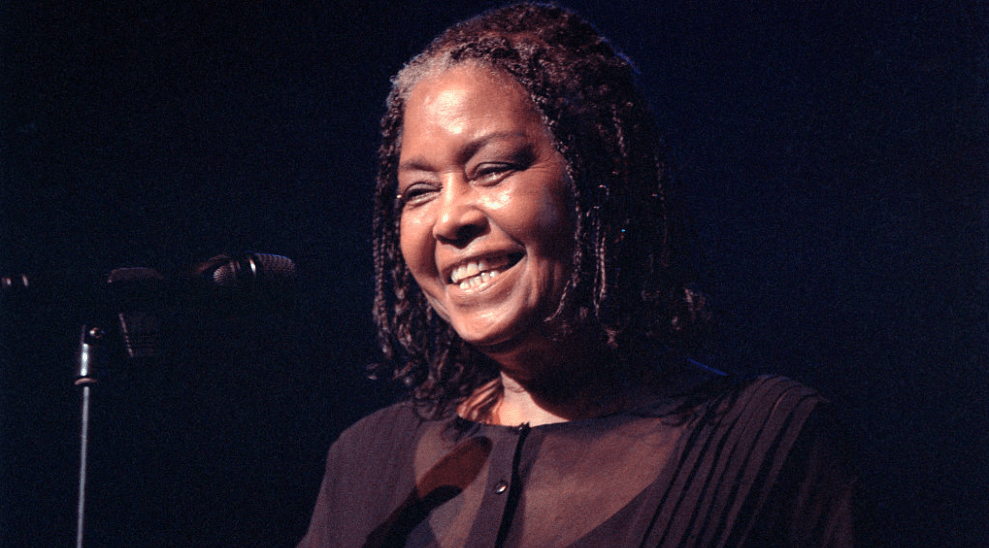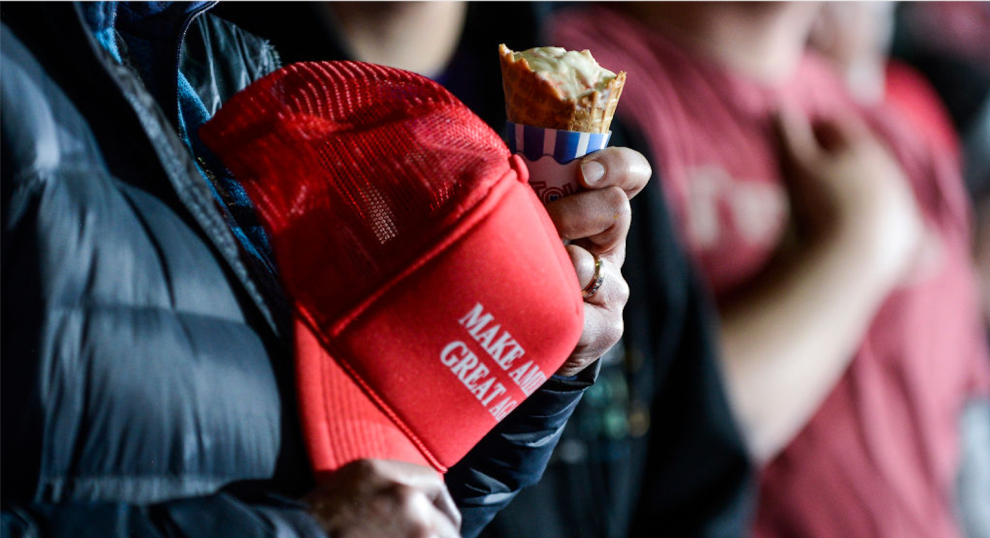Do you remember the hysteria of the “culture wars”? In the 1990s—across magazine pages and college campuses and in books (Arthur Schlesinger Jr., hello!)—there was a growing concern about the culture. Ah, that vague noun. Much like today, discussions of the problem with the discourse or the culture fit the eye of the beholder. In grasping for facts that fit a feeling of anxiety, thinkers lumped in anything they could find.
This led to one of my favorite sentences I’ve read in our archives—as I pull from it each week to give you a boost into the weekend: The opening line in Louis Menand’s 1995 piece “Mixed Paint.”
The “culture wars”—the metaphor into which campus hate-speech codes, school prayer, Afrocentric school curricula, abortion, politically correct language, family values, affirmative action, the racial distribution of intelligence, deconstructionist literary criticism, sexual harassment policy, the Great Books, hardcore pornography, publicly funded art, and many other fractious things, are currently stuffed—are misfigured.
I found comfort, and maybe you will too, in realizing how “stuffed” terms can be when they mean, in fact, whatever you want them to.
The rest of Menand’s piece might not be worth the read. I don’t agree with much of it. Its best parts point out that these discussions over “culture” have occurred for a long time. He quibbles that the misconfiguring fear for liberalism in the “culture war,” much like the fear of “cancel culture” ruining free speech today, is actually a series of attacks (from every angle, all across the political spectrum) over who has power. Gripes about the end of the melting pot, and the end of liberalism, are misplaced. That’s all interesting, and worth remembering.
But Menand, who now writes at the New Yorker and published the fantastic history of American pragmatism The Metaphysical Club, spins that out as a grand vision of liberalism as saving America. He believes that all this friction of ideas means America is actually finally doing some mixing, as real integration occurs. (I disagree!) He says liberalism is to thank for that. (I disagree, again!) And it drones on from there, with more than a vague hint of condescension.
His most fascinating (and wrong) point, to me, is that the problem is that “liberalism has nothing substantive to say about culture.” While “liberals, like anyone else, have views about culture,” he writes, “liberalism doesn’t.” Think of the “cultural vacuum” of the SAT, as an example, he writes.
Liberalism’s faith is that groups are fundamentally equal in capacity, so that bracketing race and gender to eliminate bias will produce demographically proportional results. There is no reason to believe that, in the cultural vacuum tests like the SATs are supposed to provide, people will score lower or higher just because they have breasts or darker skin. Holding cultural background constant, liberals believe we can measure, and reward, excellence and excellence alone.
I think many would find the SAT example laughable. The test’s false neutrality is the problem. In a racist society, you cannot, as liberalism would hope, just keep “cultural background constant.” Menand holds out hope for the triumph of a neutral meritocracy that liberalism will create. Well, it hasn’t happened.
But, at the same time, I think Menand is aware of how capitalist democracies are prone to complain about “culture” as a code for battles over inequality.
The obsession with “culture” (as opposed to, say, economics) as the key to our national problems draws on an intellectual tradition which points to culture (high culture, indigenous culture, or folk culture, depending on the theorist) as the element of continuity and moral coherence in a world characterized precisely by its lack of respect for continuity and moral coherence. The trouble with this faith is that in addition to being socially and economically mobile and unstable, modern liberal societies are culturally mobile and unstable, as well. Capitalist democracies are not just permissive about cultural change; they actually thrive on it. A new taste means a new market. A free-for-all is exactly the sort of “culture war” capitalist societies produce.
Even if you hate all of this Menand article, take comfort—hate-reading a long article can be a lovely weekend activity too. Plus, his recent one on affirmative action in the New Yorker has a markedly different series of conclusions. Check that out here.







